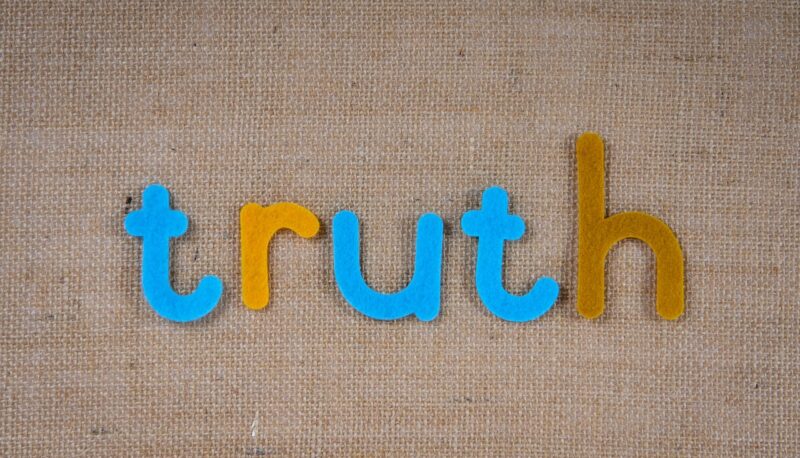At People For, standing up for truth is our mission, and that mission has gotten increasingly difficult lately. With seemingly constant attacks on the truth from the Far Right, whether it’s teaching truth in schools or expecting our political leaders to speak the truth at the podium, standing up for the truth can feel like a daunting task.
To help, we want to discuss some of the best ways to distinguish what is true from what is not, recognize the reasons behind assaults on the truth, and fight back when you see someone attempting to manipulate the truth for their own gains.
Is the Idea Backed Up by Reputable Sources?
Truth is reputable and replicable. It’s backed up by facts, logic, and verifiable sources. When someone presents something as true, they should be able to explain why it’s true using data and evidence. If they can’t, or if their evidence is questionable or not backed up by experts, the veracity has to be questioned.
A perfect example can be found in the incessant attempts to ban books. Evidence justifying the bans or proving the dangers of frequently-banned books is nowhere to be found. Arguments often come down to dubious claims about sexually explicit material, even when the material in question hardly rises to the level of explicitness, rather reflecting the lived experiences of LGBTQ people and people of color – who are disproportionately affected by bans. Those perpetrating the bans are relying on subjective judgements and hyperbole as a cover for racial animus and homophobia because without evidence-based sources for the dangers these books supposedly pose, hyperbole is all they have.
Are the People Promoting this Idea Biased (Consider the Source)?
Bias can creep into any argument, even when advanced by well-meaning people. It’s up to all of us to examine our own biases and understand how they affect our opinions and outlooks. When someone fails to do that, the truth can take a hit.
Going back to the previous example, individual perceptions about what kids should have access to in school can cause someone to attack certain books. It’s no coincidence that 7 out of the 13 most banned books according to the American Library Association were attacked because of LGBTQ representation. People who hold homophobic and transphobic biases oppose books about queer people, just like racists oppose books about race. Instead of addressing their own bias, the people perpetrating book bans attack the targets of their biases, and truth suffers for it.
Is There an Agenda Behind Their Actions?
Sometimes bias isn’t even a factor, and some attacks on truth just boil down to lies, manipulation, and the quest for power. If a group is, for example, attempting to garner votes from a fringe portion of their base which they know is radicalized against certain ideas, they might flat-out lie about those ideas in order to twist the narrative and score political points.
In the case of book banning, groups like Moms for Liberty are trying to decide what all kids learn, and their motives seem less than altruistic. While they purport to care about children, education, and “parents’ rights,” they seem more focused on raking in donations and propping up white nationalism.
Paying attention to ulterior motives is vital in the quest for truth. Groups that want social influence, political power, or just donors’ money will pretend to care about issues like education, and they’ll exploit their followers’ biases to get what they want.
What Can You Do to Fight for Truth?
First, champion reputable sources. When you see someone stating an idea, ask for a source. Challenge that source. Reputable sources will hold up to scrutiny, and the people who trust them will be willing to accept that scrutiny as it strengthens, not diminishes, their stance.
Second, check yourself for bias. This can be a difficult thing for people to do, but it’s extremely important. We all have biases that we need to address, and examining them can help us better recognize how we need to change and what biases might be affecting others.
Finally, look for the motives and the motivators behind different positions. Who stands to gain? Who makes a profit? Why might someone want to stir up this issue? In an era of immense attacks on the truth, it’s up to all of us to pull back the curtains and expose everyone who attempts to twist the truth for their own cause.
